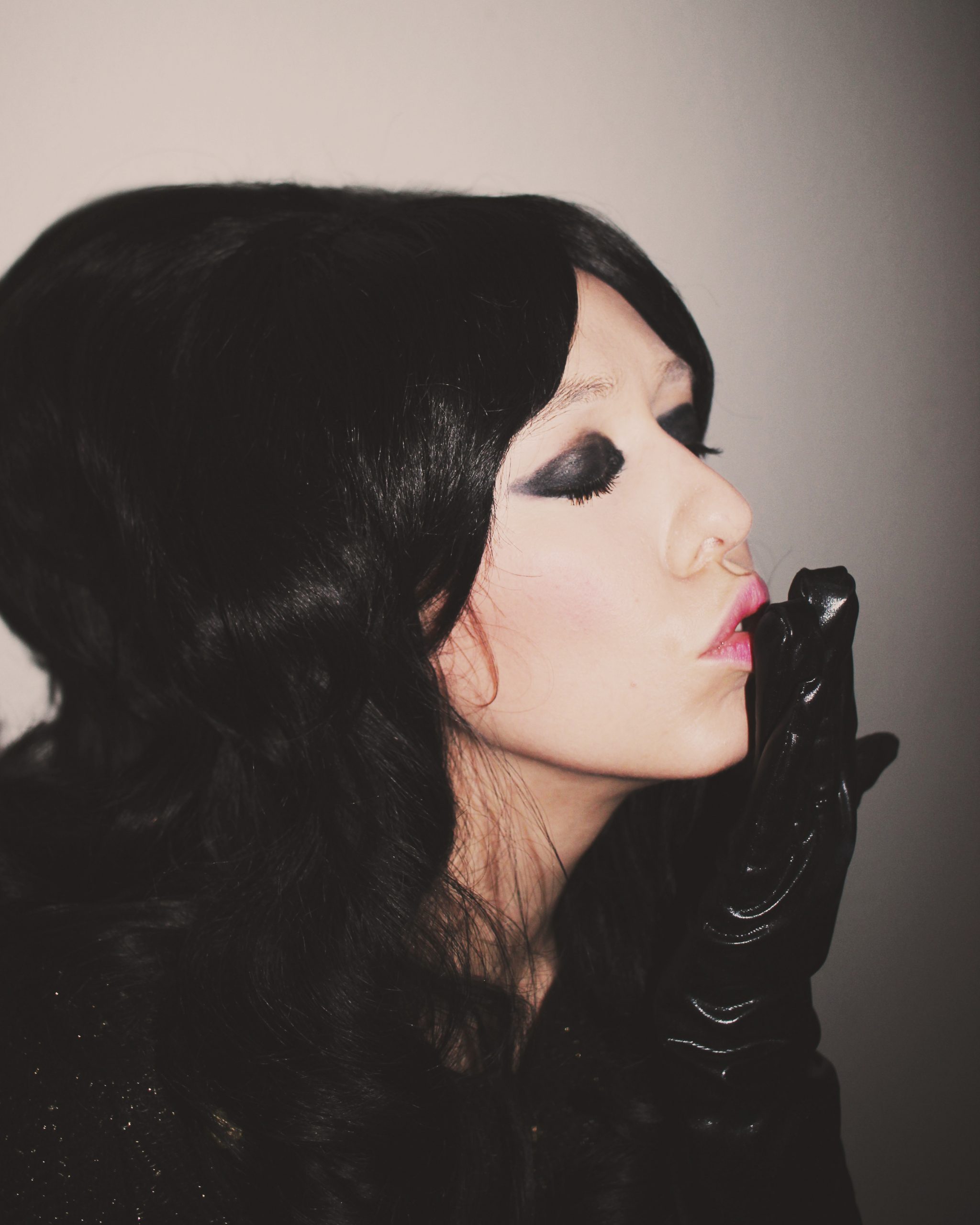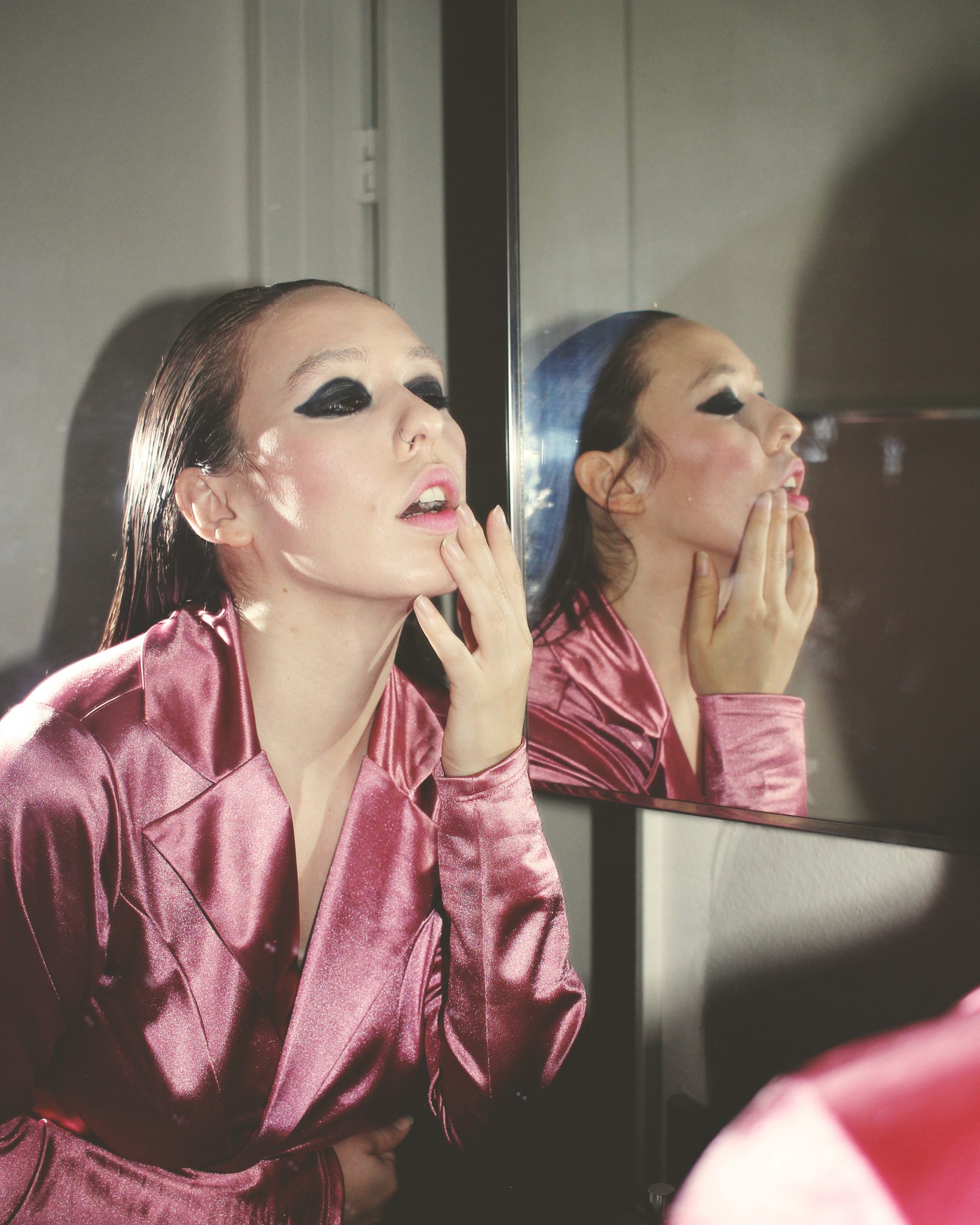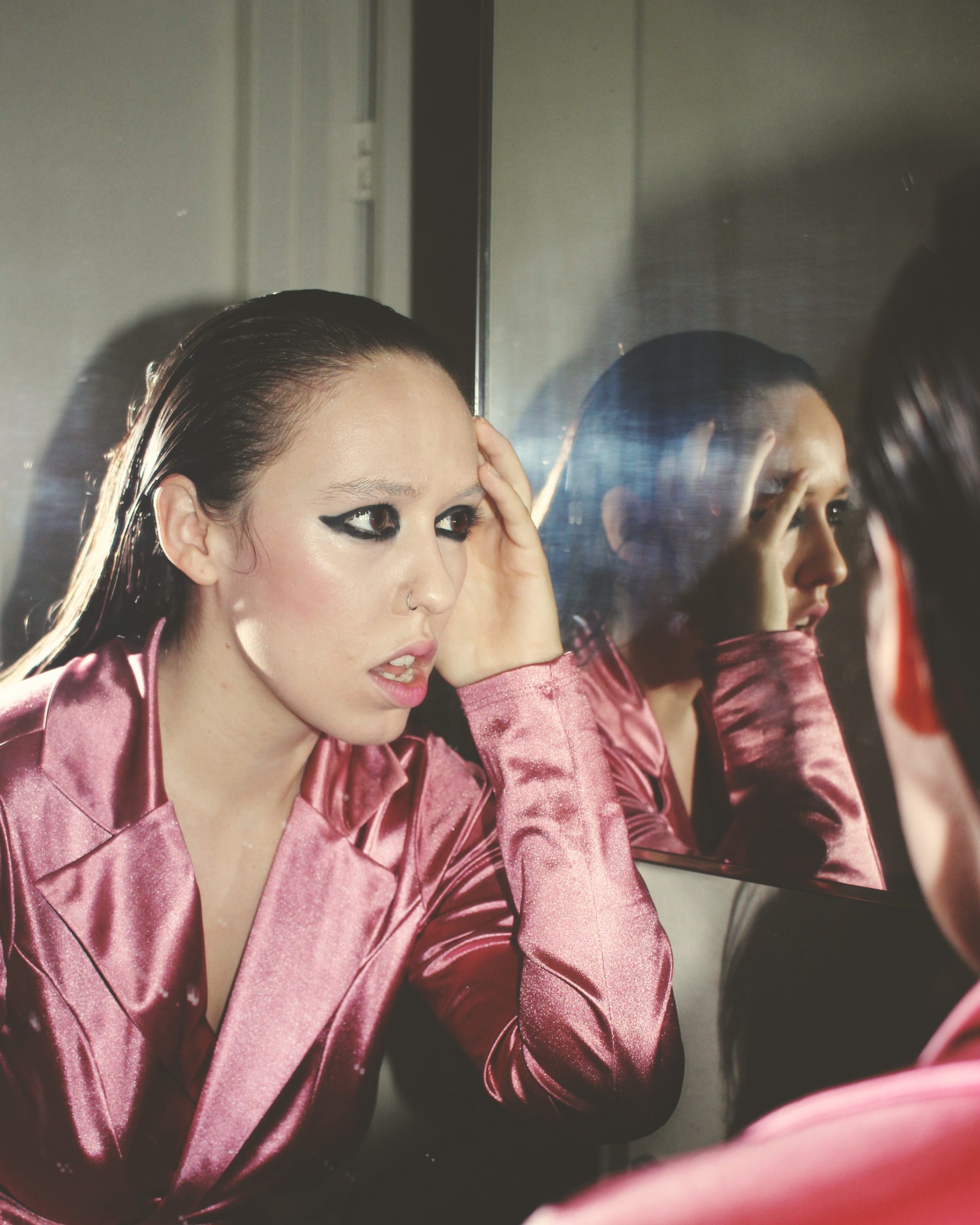
The ideal of the “American Beauty” is arguably the most tried and true cultural scams of the modern age. Though veiled with the facade of male-adoration, the long-accepted norms that a woman’s goals in life should revolve around romance, appearances kept and opinions reserved characterizes the shared oppression all women can attest to on some level. Here to tell the stories of the women who fall outside of this unrealistic standard is trailblazing artist, Luna Aura and her band of anti-American Beauties.
Luna Aura is well-versed in the relentless conditioning of the patriarchy. An Arizona-native who grew up in the conservative setting of the Church of Latter-day Saints, Luna openly admits to subscribing to the sexist ideals presented to her on a bedazzled, gold platter as a child. Though gaining a wealth of character, kindness and integrity from her days in Church, it wasn’t until she was able to embark on life on her own terms was she able to see the oppressive nature of the system our society so adamantly endorses.
From this realization grew the concept for debut EP ‘Three Cheers For the American Beauty,’ an unapologetic tribute to the “other” girls, those who reject a subservient role in society and refuse to admonish themselves for not fitting into a toxic mold created for them. Each single is attached to a narrative, telling a story of young, American woman who personifies various cultural pressures presented by society. To further the concept, the cover art for the project depicts each character in a gaudy Beauty Pageant setting, one of the most fabricated environments Luna could think of. A brilliant testament to Luna’s overarching vision and artistry, ‘Three Cheers for the American Beauty’ is shaping up to become a creative catalyst for the feminist movement, especially important amid a pinnacle moment in U.S. history, during which it seems that the fight for women’s rights may be taking a few steps backward.
The third and most recent single off the EP, “Honey,” tells a story of defiance and control through “Southern-belle” Anna-Belle Lynn Grace’s story (read onto the interview for the full tea). A bombastic, rock-infused banger, reminiscent of the most BAMF version of Gwen Stefani circa No Doubt we can think of, Luna presents a unique brand of emphatic vulnerability, redefining what it means for a woman to shamelessly claim her own against all odds. Co-written and produced by JT Daly (K.Flay, PVRIS, Paper Route), the sounds present encapsulate a gritty yet lustrous nook on the sonic spectrum, allowing for an intriguing juxtaposition of grunge and glam, strikingly consistent with the overarching theme and creating a noteworthy symbiosis between concept and sound.
In celebration of the release, we had the distinct pleasure of interviewing the creative savant herself, covering a wide range of topics from her experience in the Mormon Church to discovering the scam of the “American Beauty” for herself.
Growing up, did you always know you would pursue a career in music?
It was something I loved from a very early age. I had a thing for singing and songwriting that really started taking shape in my early teens, and I found that the more I did it the more I achieved and it just sort of progressed into me taking it seriously as a career as I got older. I’m still trying to make it into a full-time career, but I’ve definitely outgrown my dreams of being Hannah Montana.
Being from a conservative background and coming of age in the Mormon church, when did you start to develop your feminist, liberal-leaning ideologies? Was this a difficult process for you?
My parents were the ones to introduce me to the church but they were never fully invested. I started taking my faith seriously on my own as a teenager and attended church regularly with my friends. I have parents who love me deeply and gave me enough space to think for myself. I learned amazing things in the LDS church, mostly what it means to be a good, loving, person. I think I had music to kind of pull me out of my world and introduce me to people from all different walks of life though. It gave me a way to experience the space outside of my bubble and I was able to realize that the LDS lifestyle was not something that would bring me true happiness. It’s hard for me to fully subscribe to anything fully to be honest. I am a feminist, but so is everyone else who believes in equality.
Where did the concept for ‘Three Cheers For The American Beauty’ originate from?
I wrote this EP in a time that I was ridding myself of all the cultural conditioning and media programming that was done on me. I think culture and community are constantly interjecting into our lives to tell us what’s right and wrong, and what’s acceptable/not acceptable. We shape ourselves to it. Gender conditioning is a real thing and I was exposed to that when I attended church, heard other people’s language growing up, movies, music, the list goes on and on. We all have it and live with it here in this country. It’s our own brand of it, of course. I was tired of hearing what was okay and not okay for me to do, say, feel, create as a woman. I was tired of being mean to myself and wanted to be free of it. Writing this EP was very cathartic for me and was during a time that I was realizing I had a voice. I’ve always had one, I just recently started to listen to it.
Can you tell us more about the inspiration behind and creation of the cover art for each single?
Each song on this EP is attached to a short story of a young girl living in America. Each girl personifying a different cultural/societal pressure that is put on women in this country; hyper-sexualization of young girls, gender roles, unhealthy beauty standards, etc. Each song on the EP works as the soundtrack to each story, and I just thought of bringing all the girls together in a beauty pageant setting. Felt like a cheeky thing to do. These characters aren’t the villains of their stories, but they definitely aren’t the heroes either. They’re violent and they’re cruel, and I wanted to introduce them in a way that felt campy and fake. Beauty pageants are exactly that.

Can you tell us about the story behind the woman who inspired “Honey?”
Honey is inspired by a character named Anna-Belle Lynn Grace, a polite young girl with a timid disposition who lives in South Carolina with her parents in the 60’s. She becomes a victim of sexual abuse at the hands of a young man from her town and instead of telling someone she lets it sit with her until she eventually breaks. We live in a society that chooses to believe the attacker over the victim, and I wanted to create a world where Anna felt her pain but was strong enough to do something about it herself. I don’t want to let too much go too soon though.
What is your personal experience with the romanticizing of the American Beauty in your own life?
It was in pretty much everything I consumed as a young girl. We live in a capitalistic society, so it’s only logical to point out that we’re being sold things and ideas on a daily basis. I think America sells this version of a woman who is fraudulent, and unrealistic. The “perfect woman” doesn’t exist, and if she does I doubt she’s happy. She was everywhere though. In your favorite show, on the magazine, in the movies, at school. I think the biggest thing that is sold to American women is that they could never be enough on their own. It’s genius, really. How else would they get you to buy all their useless shit?
Was there a specific moment in your life when you realized that this idealization was actually oppressive in nature?
I had just gotten out of – what I like to call – a “long-term relationships”, meaning a series of relationships in which there is no time to grow in between. I grew up thinking marriage would be my greatest accomplishment and I found myself always needing that validation from men who did not deserve my love or energy. When I finally decided that it was time to be alone and learn myself, I started realizing how mean I was being to myself. I started asking myself more questions, like where all the insecurities and self-hate were coming from. I started to realize that my behavior towards myself was a product of my environment. That the world meant for me to look, act, and speak one way, and feel shame if I didn’t. It all sort of hit me one day when I was writing in the studio. The songwriting was just kind of happening to me, and I got lost in the safe space where anything I say goes. I think we made something special out of it.
Are there any particular women in your life who inspired you to find your strength?
All of the women in my life encouraged me to write this EP. We have this bond between us that is unexplainable. I think it’s because we share in the same pain. Literally. Our bodies are in a constant cycle of pain until we’re not, and our minds are consistently being poisoned with ideas of who and what we are supposed to be in this world. It connects us. I just wanted to write something that helped me tell my story, but it was all the females in my life who gave me the courage to do so.
If you could give one piece of advice to a girl who feels that she doesn’t fit the mold of the American Beauty, what would it be?
The American Beauty is a scam, and you’re too smart to be scammed. What makes you beautiful is your strength, your story, and your courage to be unapologetically yourself.

